Japan-easy - Season 2

Season 2

Episodes

#1 Shinjuku, please.
Learn useful phrases and cool kanji!
Today we'll learn how to ask or request something.
First watch the 15-minute program, then check out our new website.

#2 This is mine.
Today, we'll learn how to say that something is yours.
First watch the 15-minute program, then check out our new website.
Learn useful phrases and cool kanji!
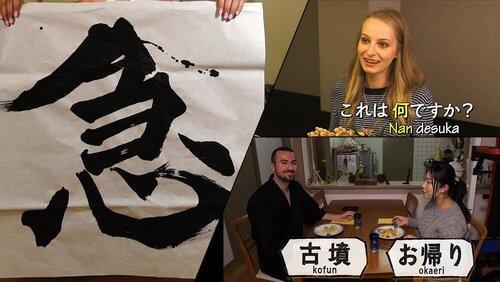
#3 What is this?
In today's program, we'll learn how to ask what something is.
We'll also learn 3 pronouns words: kore, are and sore, meaning this, that and it.
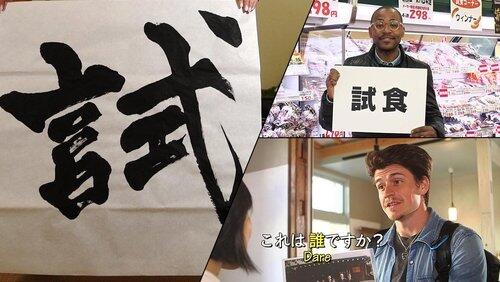
#4 Who is this?
In the program, we'll discover the various situations where we say "Who is this?" in Japanese. Let's notice that the phrase is different from when asking people in front of you and when asking when not.
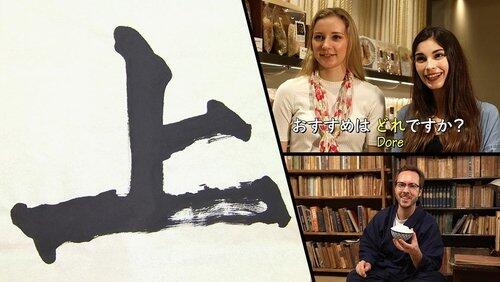
#5 Which is your recommendation?
Now let's discover how to ask for a recommendation about what to eat or buy. This one convenient expression can help you make the best decision at restaurants and when traveling or shopping.

#6 How do you say this in Japanese?
Maybe you know what something is, but do you know how to say it in Japanese? Today let's learn what to say in such a situation. This is going to help you ask a lot of questions, and that's a great way to build your vocabulary.

#7 How much is this?
The word "ikura" means "How much?" In this episode, we'll learn how to ask how much something costs. This will come in handy when shopping and traveling.

#8 Where is the restroom?
"Toire" is how we say "restroom" in Japanese. In this episode, we'll learn how to ask for directions to train stations, banks, restrooms and other places.
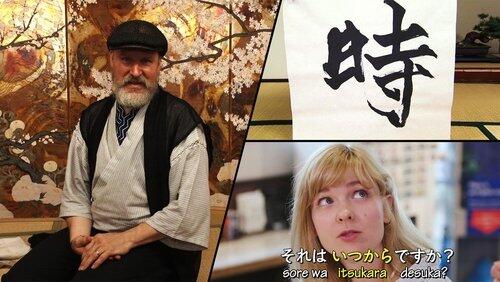
#9 When is it?
In this episode, we'll learn a question: "Sore wa itsu desuka?" We use this to ask when something is going to happen. We'll also learn about 3 kanji: 時 (time), 投 (throw) and 打 (strike / hit).

#10 Is it near here?
In this episode, we'll learn the question "Koko kara chikai desuka?" We use this to ask if something is nearby. We'll also learn 3 kanji: 道 (way), 歩 (walk) and 走 (run).

#11 How long will it take?
In this episode, we'll learn the question "Dono kurai kakarimasu ka?" We use this to ask how much time or money something takes. We'll also learn about 3 kanji: 金 (money), 近 (near) and 遠 (far).
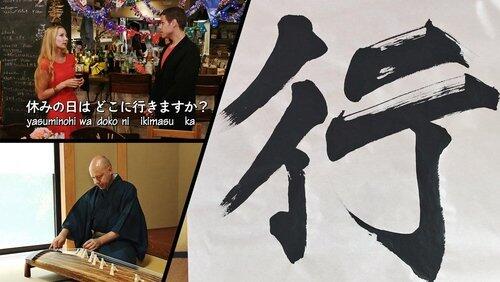
#12 Does this bus go to Shibuya?
In this episode, we'll learn the question "Kono basu wa Shibuya e ikimasu ka?" We use this to ask if a person or a vehicle goes to a certain destination. We'll also review the phrases we've learned in the past episodes. The kanji we'll learn are: 行 (go), 右 (right) and 左 (left).

#13 I want to eat ramen.
Today we'll learn how to express what we want, like when you want to eat something or when you want to ride a train. We'll also learn how to say the negative forms, like when you don't want to eat something.
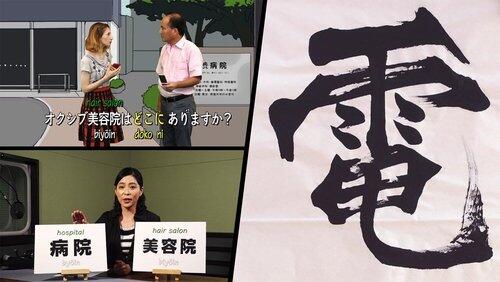
#14 Do you have miso ramen?
Today, we'll learn how to ask for what you're looking for. You can use this sentence when asking for a menu at a restaurant, or when you're looking for a particular size and color at a clothes store.
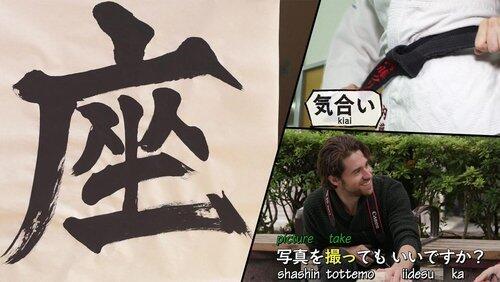
#15 May I sit down?
In this episode, we'll learn the phrase "Suwattemo iidesu ka?" It's useful when you want to ask someone for permissions. You can use it, for example, when you want to sit in an empty seat or when you want to turn on the air conditioner. And for today's kanji, we'll learn about the kanji that means "sit".

#16 Could you take my picture?
In this episode, we'll learn the phrase "Shashin o totte moraemasu ka?" This is a useful phrase when requesting someone to do something for you. You can use it, for example, when you ask someone to take your picture at a tourist spot, or when want to borrow an umbrella from a hotel. And for today's kanji, we'll learn about the kanji that means "don't" or "banned".
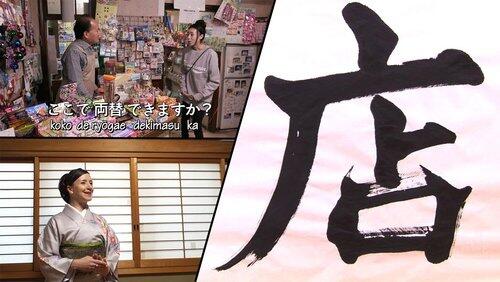
#17 Can I change money here?
In this episode, we'll learn the phrase "Kokode ryogae dekimasu ka?"
"dekimasu ka?" is a useful expression to use when you want to ask if someone can do something.
You can use it when you want to have a large serving in a restaurant or when you want to ask for something's that not on the menu. And for today's kanji, we'll learn about the character for "shop" that we often see on signs in the city.
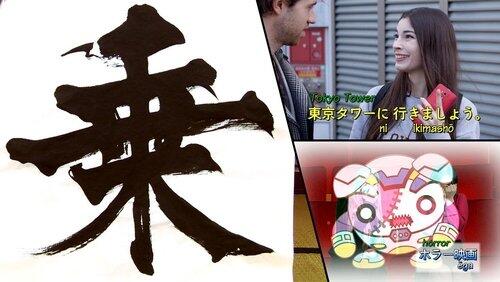
#18 Let's go to Tokyo Tower.
In this episode, we'll learn the phrase "Tokyo Tawa ni ikimasho".
This is useful when you want to invite somebody to do something, like inviting someone to go to the movies with you or to go out to dinner. For Today' s Kanji, we'll learn the character for "ride".

#19 I think it's cute.
In this episode, we'll learn the phrase "Kawaii to omoimasu". This is a convenient expression that you can use to express your impressions. Just add "to omoimasu" to an adjective like "Kawaii". In the video, pay attention to the conversation of a couple as they go shopping.
And for today's kanji, we'll learn about the character for "think".

#20 This is expensive, isn't it?
In this episode, we'll learn the phrase "Kore wa takai desu ne". "Kore wa takai desu" means "This is expensive". And when you put "ne" at the end, it becomes an expression used to seek consent or sympathy from the other person. Let's watch the video and pay attention to the change at the end of the sentences.
And for today's kanji, we'll learn about the character for "high".

#21 I like the bigger one.
In this episode, we'll learn the phrase "hō ga īdesu". You can use this phrase to choose between 2 items in front of you. For example, you can use it when shopping. You can also use it to make a request. Let's check out the video for details.
And for today's kanji, we'll learn the character for "big".

#22 I am cooking now.
In this episode, we'll learn the phrase "teimasu". It's used to express an ongoing action. For example, "ima ryōri o shiteimasu". "Ima" means "now", and "teimasu" is likes the I-N-G verb-ending. First, we start with "shiteimasu", meaning "doing". Let's check out the video, and try to use the phrase.
And for today's kanji, we'll learn the character for "make".

#23 I don't like this.
In this episode, we'll learn the phrase "ja arimasen". This is added to the end of a word to make it a negative. For example, the word for "to like" is "suki". But if we say "suki ja arimasen", it means "I don't like (something)". Let's watch the video clip to get a better understanding.
And for today's kanji, we'll learn the character for "like".

#24 I have to go home.
In this episode, we'll learn how to say "I have to ___" which is in Japanese "nakya ikemasen". Since this is the final episode of Japan-easy II, we need to say "kaera nakya ikemasen" which means "I have to go home".
And for today's kanji, we'll learn the character for "to go home".
Recently Updated Shows

Invasion
Earth is visited by an alien species that threatens humanity's existence. Events unfold in real time through the eyes of five ordinary people across the globe as they struggle to make sense of the chaos unraveling around them.

Peacemaker
This James Gunn-created series continues the saga of Peacemaker, a vainglorious superhero/supervillain who believes in peace at any cost — no matter how many people he has to kill. After a miraculous recovery from his duel with Bloodsport, Peacemaker soon discovers that his freedom comes at a price.

48 Hours
48 Hours is a CBS news magazine that investigates intriguing crime and justice cases that touch on all aspects of the human experience. Over its long run, the show has helped exonerate wrongly convicted people, driven the reopening -- and resolution -- of cold cases, and changed numerous lives. CBS News correspondents offer an in-depth look into each story, with the emphasis on solving the mystery at its heart. The program and its team have earned critical acclaim, including 20 Emmys and three Peabody Awards.

Wednesday
Smart, sarcastic and a little dead inside, Wednesday Addams investigates a murder spree while making new friends — and foes — at Nevermore Academy.

Shifting Gears
Shifting Gears centers on Matt, a stubborn, widowed owner of a classic car restoration shop. When Matt's estranged daughter and her teenage kids move into his house, the real restoration begins.